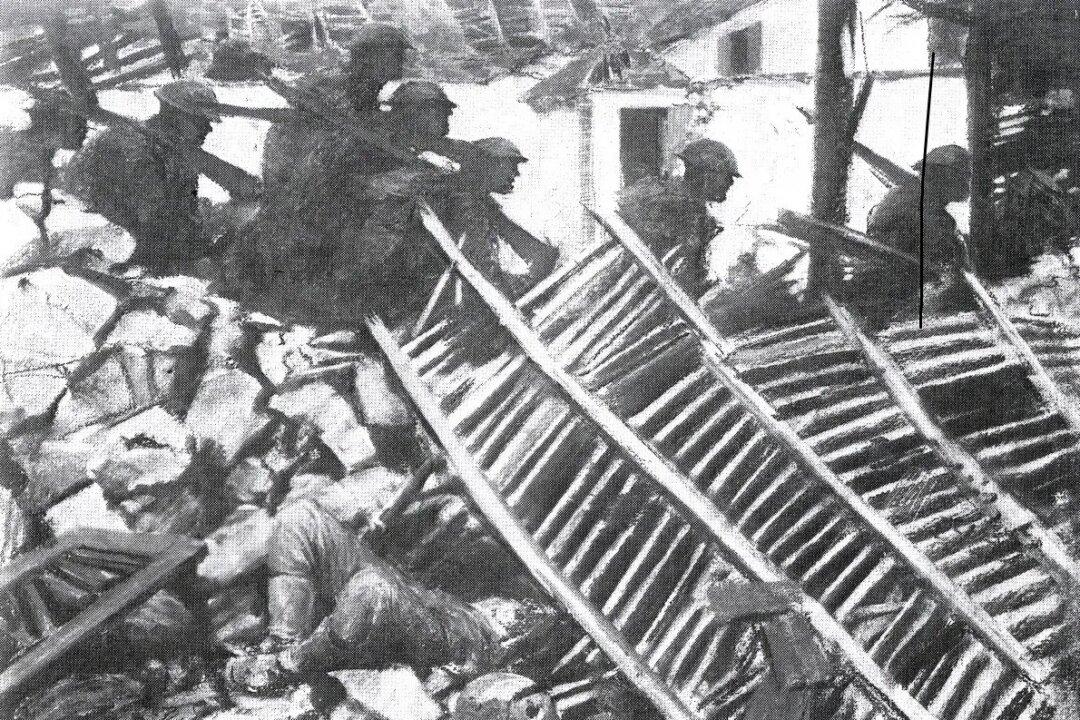Book Review: ‘Christopher Dawson: A Cultural Mind in the Age of the Great War’
A guide to making sense of 2000 years of Western civilization

"Among the wreckage. Troops going forward at night," by Capt. Harvey Dunn, E.R.C. SC. Identifier 111 SC 31699. Public Domain
|Updated:
